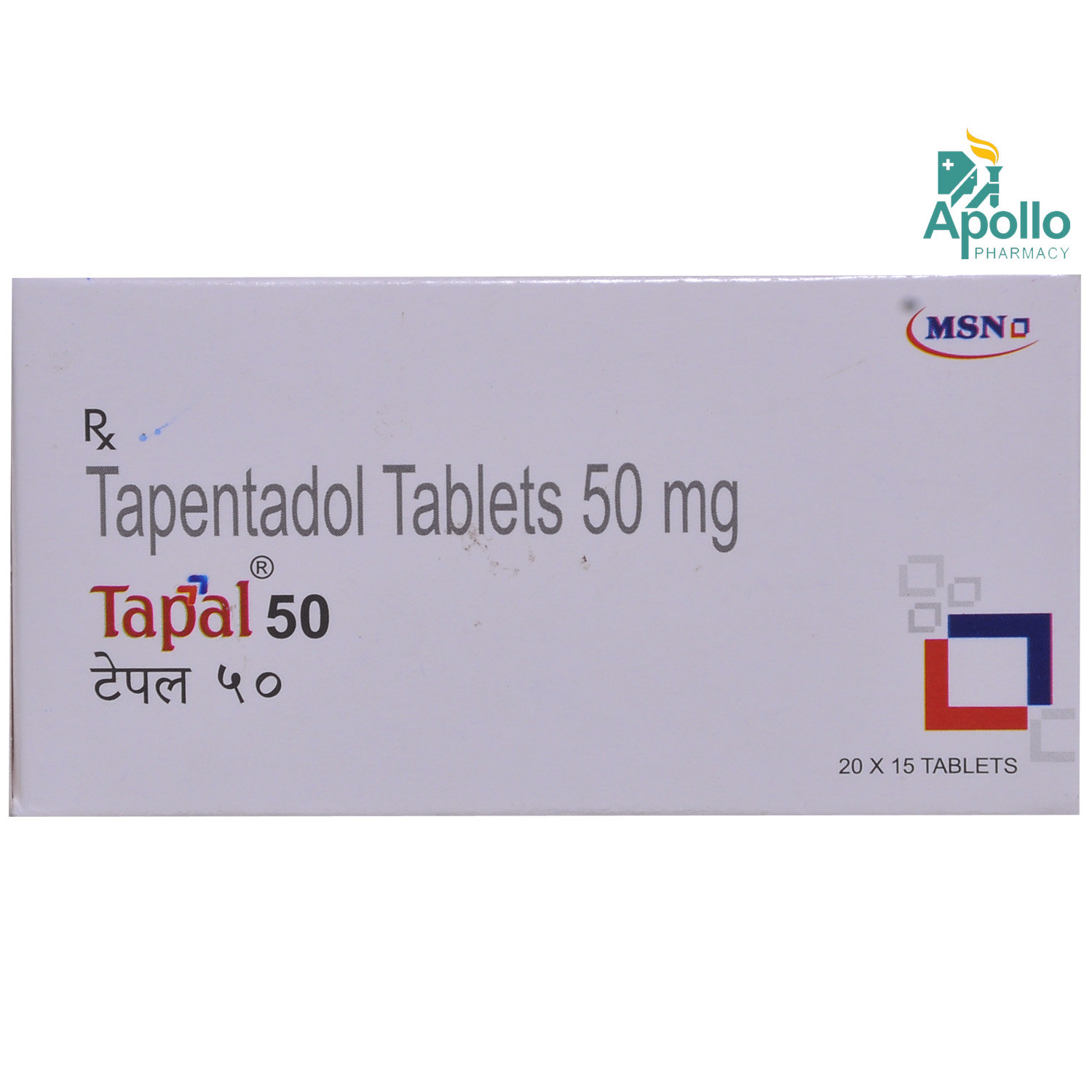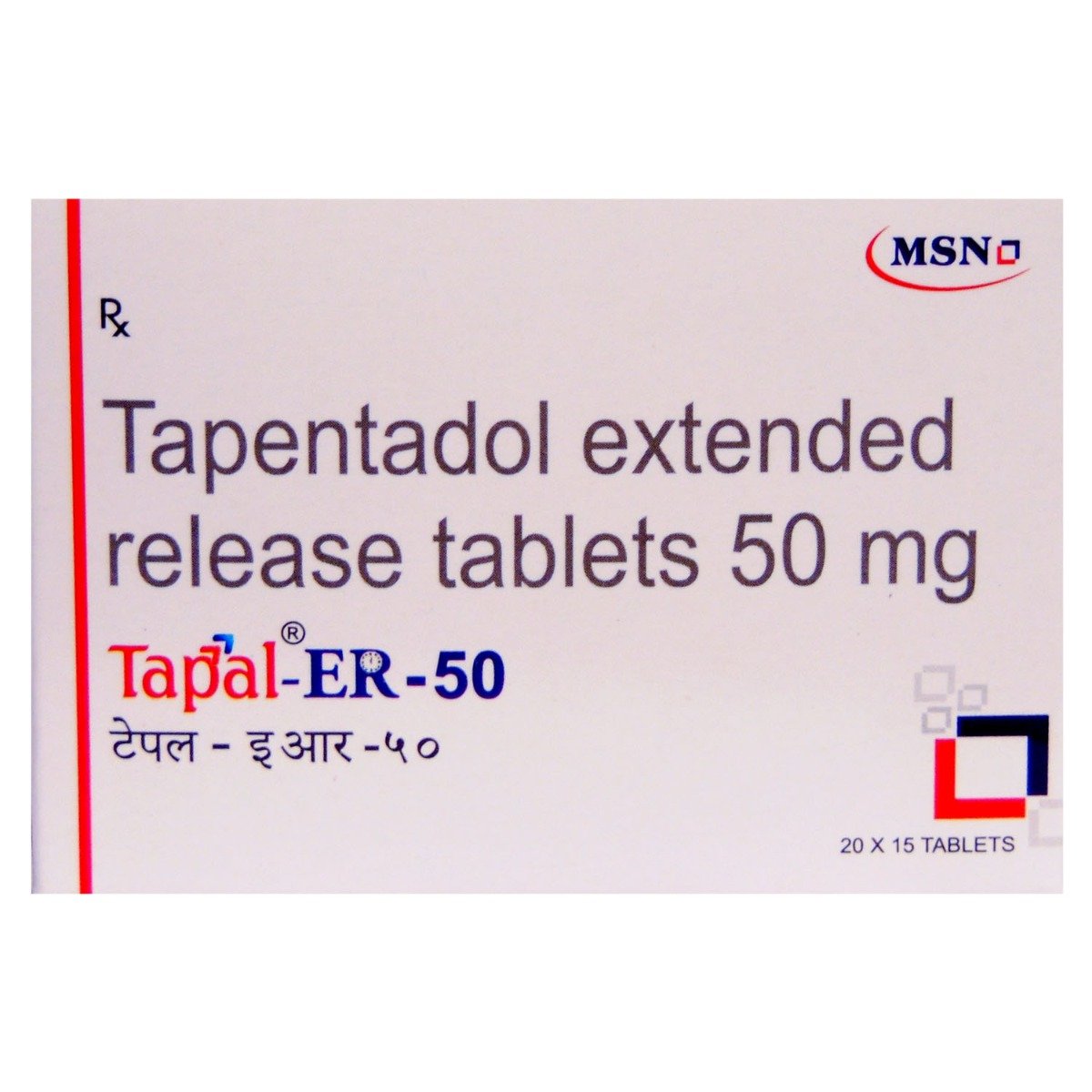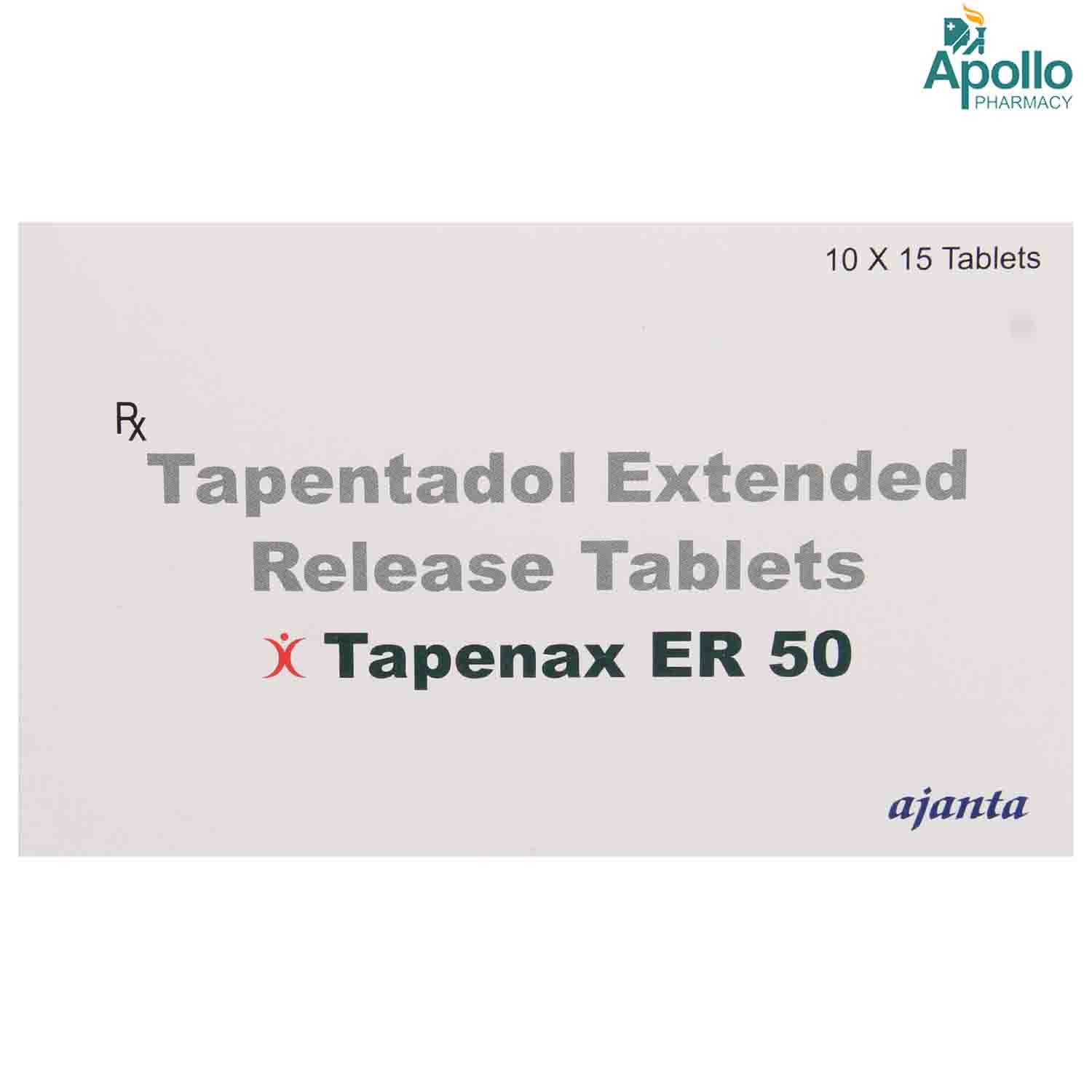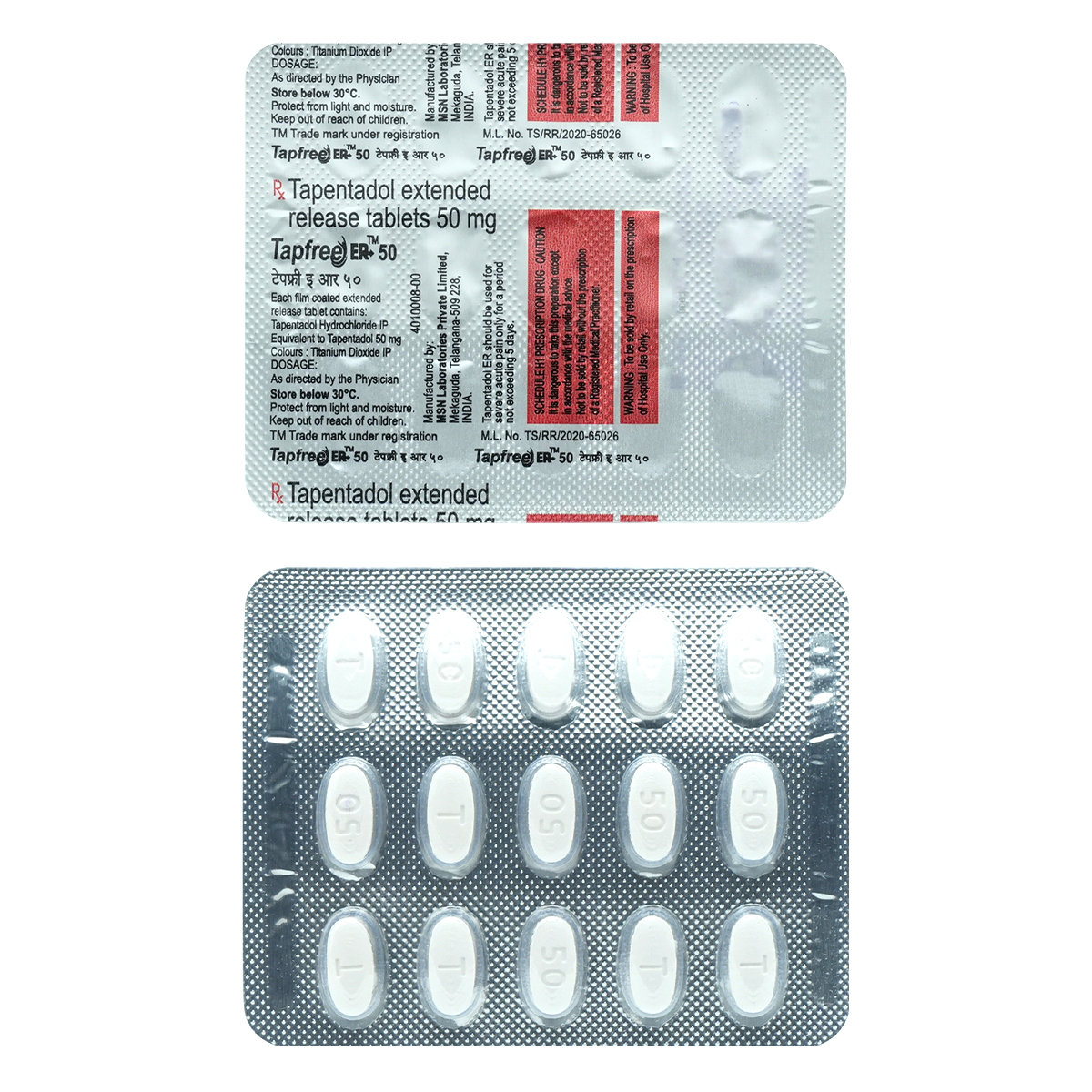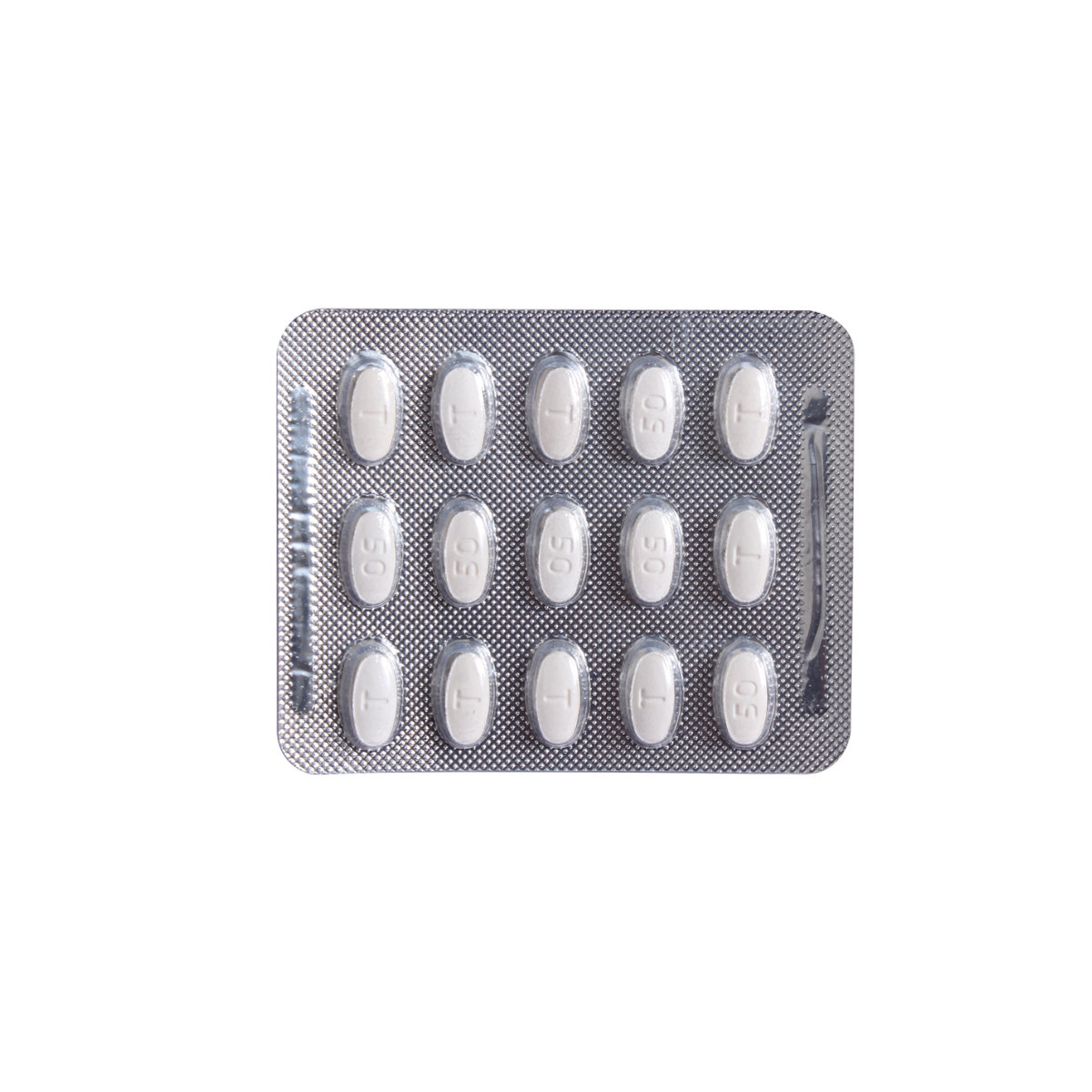DUOVOLT 50MG TABLET
MRP ₹126.5
(Inclusive of all Taxes)
₹19.0 Cashback (15%)
Provide Delivery Location
Online payment accepted
 Prescription drug
Prescription drugWhats That
Composition :
Manufacturer/Marketer :
Consume Type :
Expires on or after :
Return Policy :
About DUOVOLT 50MG TABLET
DUOVOLT 50MG TABLET is an opioid painkiller used to alleviate moderate to severe pain. Pain is an unpleasant sensory and expressive experience caused by real or potential tissue injury.
DUOVOLT 50MG TABLET composed of Tapentadol; it acts directly on opioid receptors in the central nervous system, reducing feelings of pain by interfering with the way neurons convey pain between the brain and the body.
DUOVOLT 50MG TABLET should be taken only if prescribed by the doctor. The possible common side effects of DUOVOLT 50MG TABLET are constipation, nausea, sleepiness, vomiting, tiredness, headache, dizziness, and abdominal pain. Report to your healthcare provider if any of these symptoms persist or worsen.
Inform your doctor if you are allergic to any content of this medicine before taking DUOVOLT 50MG TABLET. If you have asthma or breathing problems, gastrointestinal obstruction, and paralysis of the gut or ileus, please let your doctor know before prescribing DUOVOLT 50MG TABLET to you. Inform your doctor if you are experiencing acute poisoning from alcohol, sleeping pills, pain relievers, or other psychotropic medications. If you are pregnant, planning for pregnancy or breastfeeding, consult your doctor before taking this medicine. Do not discontinue DUOVOLT 50MG TABLET without first consulting your doctor, and your doctor may gradually reduce the dose to avoid withdrawal symptoms.
Uses of DUOVOLT 50MG TABLET
Directions for Use
Key Benefits
DUOVOLT 50MG TABLET is a strong painkiller that belongs to the class of opioids and is used for treating moderate to severe pain. DUOVOLT 50MG TABLET acts directly on opioid receptors in the central nervous system, reducing feelings of pain by interfering with the way neurons convey pain between the brain and the body. Thus, it relieves the pain that occurs due to various medical conditions.
Storage
- Inform your doctor about the nausea and discuss possible alternatives to the medication or adjustments to the dosage.
- Divide your daily food intake into smaller, more frequent meals to reduce nausea.
- Opt for bland, easily digestible foods like crackers, toast, plain rice, bananas, and applesauce.
- Avoid certain foods that can trigger nausea, such as fatty, greasy, spicy, and smelly foods.
- Drink plenty of fluids, such as water, clear broth, or electrolyte-rich beverages like coconut water or sports drinks.
- Use ginger (tea, ale, or candies) to help relieve nausea.
- Get adequate rest and also avoid strenuous activities that can worsen nausea.
- Talk to your doctor about taking anti-nausea medication if your nausea is severe.
- Record when your nausea occurs, what triggers it, and what provides relief to help you identify patterns and manage your symptoms more effectively.
- Inform your doctor about dizziness symptoms. They may adjust your medication regimen or prescribe additional medications to manage symptoms.
- Follow your doctor's instructions for taking medication, and take it at the same time every day to minimize dizziness.
- When standing up, do so slowly and carefully to avoid sudden dizziness.
- Avoid making sudden movements, such as turning or bending quickly, which can exacerbate dizziness.
- Drink plenty of water throughout the day to stay hydrated and help alleviate dizziness symptoms.
- If you're feeling dizzy, sit or lie down and rest until the dizziness passes.
- Track when dizziness occurs and any factors that may trigger it, and share this information with your doctor to help manage symptoms.
- Preventing Vomiting (Before it Happens)
- Take medication exactly as prescribed by your doctor. This can help minimize side effects, including vomiting.
- Having a small meal before taking your medication can help reduce nausea and vomiting.
- Talk to your doctor about taking anti-nausea medication along with your prescribed medication.
- Managing Vomiting (If it Happens)
- Try taking ginger in the form of tea, ale, or candy to help alleviate nausea and vomiting.
- What to Do if Vomiting Persists
- Consult your doctor if vomiting continues or worsens, consult the doctor for guidance on adjusting your medication or additional treatment.
- Hydrate your body: Drink enough water to prevent dehydration and headaches.
- Calm Your Mind: Deep breathing and meditation can help you relax and relieve stress.
- Rest and Recharge: Sleep for 7-8 hours to reduce headache triggers.
- Take rest: lie down in a quiet, dark environment.
- Cold or warm compresses can help reduce tension.
- Stay Upright: Maintain good posture to keep symptoms from getting worse.
- To treat headaches naturally, try acupuncture or massage therapy.
- Over-the-counter pain relievers include acetaminophen and ibuprofen.
- Prescription Assistance: Speak with your doctor about more substantial drug alternatives.
- Severe Headaches: Seek emergency medical assistance for sudden, severe headaches.
- Frequent Headaches: If you get reoccurring headaches, consult your doctor.
- Headaches with Symptoms: Seek medical attention if your headaches include fever, disorientation, or weakness.
- Avoid driving or operating machinery or activities that require high focus until you know how the medication affects you.
- Maintain a fixed sleeping schedule, create a relaxing bedtime routine and ensure your sleeping space is comfortable to maximize your sleep quality.
- Limit alcohol and caffeine as these may worsen drowsiness and disturb sleep patterns.
- Drink plenty of water as it helps with alertness and keeps you hydrated and for overall well-being.
- Moderate physical activity can improve energy levels, but avoid intense workouts right before bedtime.
- Inform your doctor about your constipation symptoms. They may adjust your medication or advise alternative treatments.
- Stay hydrated by drinking sufficient of water (at least 8-10 glasses a day) to help soften stool and promote bowel movements.
- Increase fibre intake by eating foods high in fibre, such as fruits, whole grains, vegetables and legumes, to help bulk up the stool.
- Establish a bowel routine by trying to go to the bathroom at the same time each day to train your bowels.
- Engaging in regular exercise, like walking or yoga, can support in bowel movement stimulation.
- Consult your doctor if constipation persists, and discuss alternative treatments or adjustments to your medication.
- Inform your doctor about dry mouth symptoms. They may adjust your medication regimen or prescribe additional medications to manage symptoms.
- Drink plenty of water throughout the day to help keep your mouth moist and alleviate dry mouth symptoms.
- Chew sugar-free gum or candies to increase saliva production and keep your mouth moisturized.
- Use saliva substitutes, such as mouthwashes or sprays, only if your doctor advises them to help moisturize your mouth and alleviate dry mouth symptoms.
- Avoid consuming smoking, alcohol, spicy or acidic foods, and other irritants that may aggravate dry mouth symptoms.
- Schedule regular dental check-ups to keep track of your oral health and handle any dry mouth issues as they arise.
Drug Warnings
If you are hypersensitive or allergic to any of the ingredients in DUOVOLT 50MG TABLET, do not take it. Please do not stop taking DUOVOLT 50MG TABLET without first consulting your doctor, as this may result in withdrawal symptoms. If you are pregnant or nursing, do not take the DUOVOLT 50MG TABLET unless your doctor has recommended it. DUOVOLT 50MG TABLET may cause drowsiness and blurred vision; therefore, drive only if you are awake. DUOVOLT 50MG TABLET is not recommended for children because its safety and effectiveness have not been proven. Drinking alcohol while taking DUOVOLT 50MG TABLET may cause drowsiness and fatigue. If you are having suicidal thoughts, consult a doctor right away.
Drug-Drug Interactions
Drug-Drug Interactions
Login/Sign Up
Using Duovolt 50mg Tablet together with Rasagiline might raise serotonin hormone levels in the body, affecting the brain and nerve cells. Increased serotonin hormone can lead to severe side effects.
How to manage the interaction:
Taking Duovolt 50mg Tablet with rasagiline is generally avoided, but can be taken only if prescribed by a doctor. However, if you experience confusion, hallucination, seizure, extreme changes in blood pressure, increased heart rate, fever, excessive sweating, blurred vision, muscle spasm or stiffness, tremors, stomach cramps, nausea, vomiting, and diarrhea call a doctor right away. Do not discontinue any medications without consulting a doctor.
Using Duovolt 50mg Tablet together with Naltrexone can block the effects of Duovolt 50mg Tablet, which reduces its ability to effectively treat your illness.
How to manage the interaction:
Taking Duovolt 50mg Tablet with Naltrexone is generally avoided as it can possibly result in an interaction, it can be taken if your doctor has advised it. However, if you experience confusion, hallucination, seizure, extreme changes in blood pressure, increased heart rate, fever, excessive sweating, blurred vision, muscle spasm or stiffness, tremors, stomach cramps, nausea, vomiting, and diarrhoea call a doctor right away. Do not stop using any medications without a doctor’s advice.
Using Duovolt 50mg Tablet together with Safinamide can increase the risk of high blood pressure and serotonin syndrome (A condition resulting from the accumulation of high levels of serotonin in the body. Serotonin is especially a mood stabilizer).
How to manage the interaction:
Although using Safinamide and Duovolt 50mg Tablet together may cause an interaction, they can be taken if prescribed by a doctor. Consult a doctor if you have symptoms such as confusion, hallucination, fits, blood pressure alteration, increased heart rate, fever, excessive sweating, shivering or shaking, blurred vision, pain in the muscles or stiffness, incoordination, stomach cramps, nausea, vomiting, and loose stools. Inform a doctor if you have recently taken amitriptyline. Do not discontinue any medications without consulting a doctor.
Using Duovolt 50mg Tablet together with Isocarboxazid can increase the risk or severity of side effects like decreased breathing rate, irregular heart rhythms, or problems with movement and memory.
How to manage the interaction:
Taking Isocarboxazid with Duovolt 50mg Tablet is generally avoided as it can result in an interaction, it can be taken when advised by a doctor. If you experience confusion, hallucination, seizure, extreme changes in blood pressure, increased heart rate, fever, excessive sweating, blurred vision, muscle spasm or stiffness, tremors, stomach cramps, nausea, vomiting, and diarrhea call a doctor right away.
Using Duovolt 50mg Tablet together with Linezolid might raise serotonin hormone levels in the body, affecting the brain and nerve cells. Increased serotonin hormone can lead to severe side effects.
How to manage the interaction:
Taking Duovolt 50mg Tablet with Linezolid is not recommended, consult a doctor before taking it. If you experience confusion, hallucination, seizure, extreme changes in blood pressure, increased heart rate, fever, excessive sweating, blurred vision, muscle spasm or stiffness, tremors, stomach cramps, nausea, vomiting, and diarrhea call a doctor right away. Do not stop using any medications without talking to a doctor.
Co-administration of Duovolt 50mg Tablet together with Selegiline can increase the risk of serotonin syndrome (A condition resulting from the accumulation of high levels of serotonin in the body. Serotonin is a mood stabilizer).
How to manage the interaction:
Co-administration of Selegiline with Duovolt 50mg Tablet is generally avoided as it can result in an interaction, but it can be taken if a doctor has advised it. If you experience confusion, hallucination, fits, extreme changes in blood pressure, increased heart rate, fever, excessive sweating, blurred vision, muscle spasm or stiffness, tremors, stomach cramps, nausea, vomiting, and diarrhea call a doctor. Do not discontinue any medications without consulting a doctor.
Taking Duovolt 50mg Tablet with Oxycodone can increase the risk or severity of side effects like decreased breathing rate, irregular heart rhythms, or problems with movement and memory.
How to manage the interaction:
Taking Oxycodone with Duovolt 50mg Tablet can result in an interaction, it can be taken if your doctor has advised it. Contact a doctor immediately if you experience signs such as drowsiness, lightheadedness, palpitations, confusion, severe weakness, or difficulty breathing. Do not discontinue any medications without consulting a doctor.
Co-administration of Duovolt 50mg Tablet and Desvenlafaxine might raise serotonin hormone levels in the body, affecting the brain and nerve cells. Increased serotonin hormone can lead to severe side effects.
How to manage the interaction:
Co-administration of Duovolt 50mg Tablet and Desvenlafaxine can lead to an interaction, it can be taken if advised by your doctor. However, if you experience any symptoms like confusion, hallucination, seizure, increased heart rate, fever, excessive sweating, shivering or shaking, blurred vision, muscle spasm or stiffness, tremors, incoordination, stomach cramps, nausea, vomiting, and diarrhea, consult the doctor immediately. Do not stop using any medications without a doctor's advice.
Co-administration of Duovolt 50mg Tablet together with Dextromethorphan might raise serotonin hormone levels in the body, affecting the brain and nerve cells. Increased serotonin hormone can lead to severe side effects.
How to manage the interaction:
Although there is a possible interaction between Dextromethorphan and Duovolt 50mg Tablet, you can take these medicines together if prescribed by a doctor. However, if you experience symptoms such as seizures (fits), extreme changes in blood pressure, confusion, hallucination, increased heart rate, fever, excessive sweating, shivering or shaking, tremors, incoordination, blurred vision, muscle spasm or stiffness, nausea, vomiting, stomach cramp, and diarrhea, contact a doctor immediately. Do not discontinue any medication without consulting a doctor.
Taking Duovolt 50mg Tablet with Potassium clorazepate can increase the risk or severity of side effects like decreased breathing rate, irregular heart rhythms, or problems with movement and memory.
How to manage the interaction:
Taking Potassium clorazepate with Duovolt 50mg Tablet can result in an interaction, it can be taken if your doctor has advised it. Contact a doctor immediately if you experience signs such as drowsiness, lightheadedness, palpitations, confusion, severe weakness, or difficulty breathing. Do not discontinue any medications without consulting a doctor.
Drug-Food Interactions
Drug-Food Interactions
Login/Sign Up
Diet & Lifestyle Advise
- Include vitamin B and D-rich foods in your diet.
- Exercising regularly helps to improve overall health and combat pain.
- Rest well and get plenty of rest.
- Taking a warm bath can be very relaxing.
- Avoid smoking and drinking alcohol.
- Meditation and yoga can reduce stress and pain sensitivity and improve coping skills.
- Acupuncture, by stimulating pressure points, can be beneficial.
- Massages with essential oils can help increase circulation.
Side Effects of DUOVOLT 50MG TABLET
- Nausea
- Dizziness
- Vomiting
- Somnolence
- Decreased appetite
- Anxiety
- Confusion
- Hallucination
- Sleep problem
- Abnormal dreams
- Trembling
- Flushing
- Constipation
- Diarrhoea
- Indigestion
- Dry mouth
- Itching
- Increased sweating
- Rash
- Muscle cramps
- Feeling of weakness
- Fatigue
- Feeling of body temperature change
Habit Forming
Therapeutic Class
All Substitutes & Brand Comparisons
RX
Not for online saleTapdol 50 Tablet 10's
Eris Life Sciences Ltd
₹130
(₹11.7 per unit)
2% COSTLIERRX
Not for online saleBkdol T 50 Tablet 10's
Biokindle Lifesciences Pvt Ltd
₹130
(₹11.7 per unit)
2% COSTLIERRX
Not for online saleUltraniche-T 50Mg Tablet 10'S
Alniche Life Sciences Pvt Ltd
₹134
(₹12.06 per unit)
5% COSTLIER
Drug-Diseases Interactions
Drug-Diseases Interactions
Login/Sign Up
FAQs
Drug-Drug Interactions Checker List
- DULOXETINE
- DESVENLAFAXINE
- LINEZOLID
- PREGABALIN
- NALOXONE
- OXYCODONE
- DIAZEPAM
- ALPRAZOLAM
Special Advise
- Do not take DUOVOLT 50MG TABLET for longer than it is prescribed because repeatedly using it may make your body dependent on it. If you stop taking DUOVOLT 50MG TABLET suddenly, it can cause withdrawal symptoms such as restlessness and irritability. The doctor will recommend that you reduce your dose slowly to prevent the risk of withdrawal effects.
- DUOVOLT 50MG TABLET is a controlled drug, and you must take a prescription while travelling abroad.
Disease/Condition Glossary
Pain: Pain is a symptom triggered by the nervous system, causing uncomfortable sensations in the body. Pain may be dull or sharp, constant, or may come and go. The tolerance level of pain might vary from person to person. Pain can be generalized (overall body aches) or localized (affecting a specific body area). Pain can be considered a good thing as it helps us know something is wrong in the body and helps diagnose the condition. The common causes of pain include headache, muscle strain, cramps, cuts, bone fractures and arthritis.

Have a query?
Alcohol
Safe if prescribed
Drinking alcohol while taking DUOVOLT 50MG TABLET may aggravate some side effects, such as tiredness and dizziness.
Pregnancy
Consult your doctor
DUOVOLT 50MG TABLET should not be used in pregnancy unless clearly necessary. So, if you are pregnant or suspect pregnancy, inform your doctor before taking this medicine. Your doctor will weigh the benefits and potential risks before prescribing DUOVOLT 50MG TABLET.
Breast Feeding
Consult your doctor
There is little information available on the use of DUOVOLT 50MG TABLET while breastfeeding. Because it has opioid agonist activity, it is preferable to use another medication, especially if you are nursing a newborn or preterm infant. Newborn infants appear to be especially sensitive to the effects of even low-dose narcotic analgesics.
Driving
Safe if prescribed
Do not drive or operate machinery as DUOVOLT 50MG TABLET may impair the mental or physical abilities.
Liver
Consult your doctor
DUOVOLT 50MG TABLET is not recommended in patients with severe liver problems. If you have moderate problems, your doctor will recommend a different dosage regimen. In case of mild liver problems, a dosage adjustment is not required.
Kidney
Consult your doctor
A dose adjustment is not required if you have mild to moderate kidney problems. Do not take DUOVOLT 50MG TABLET if you have severe kidney problems.
Children
Safe if prescribed
Tablet forms of Tapentadol are not suggested for children and adolescents below the age of 18 years.





